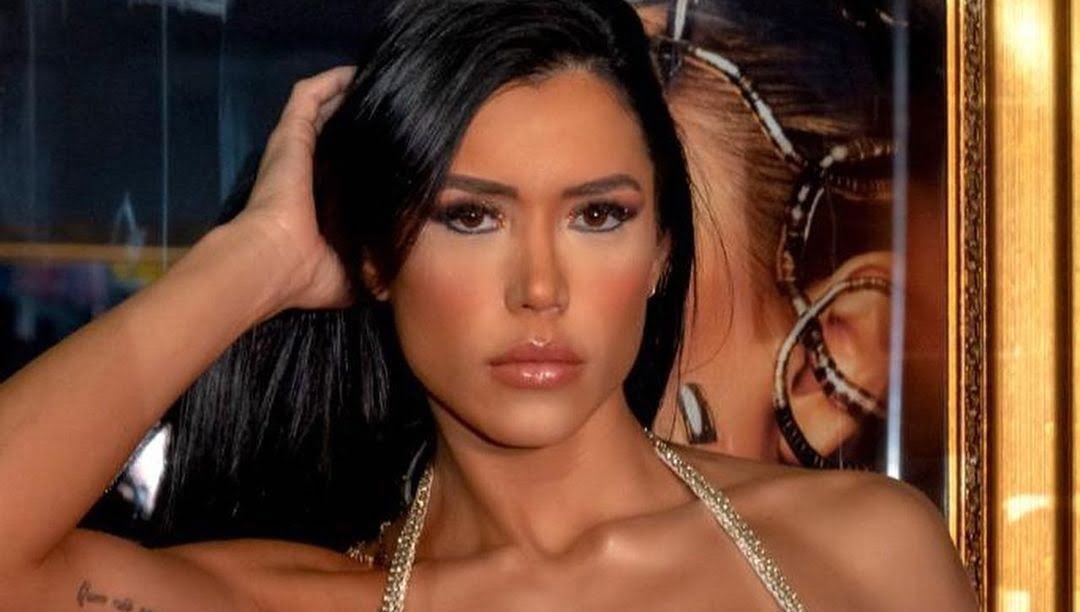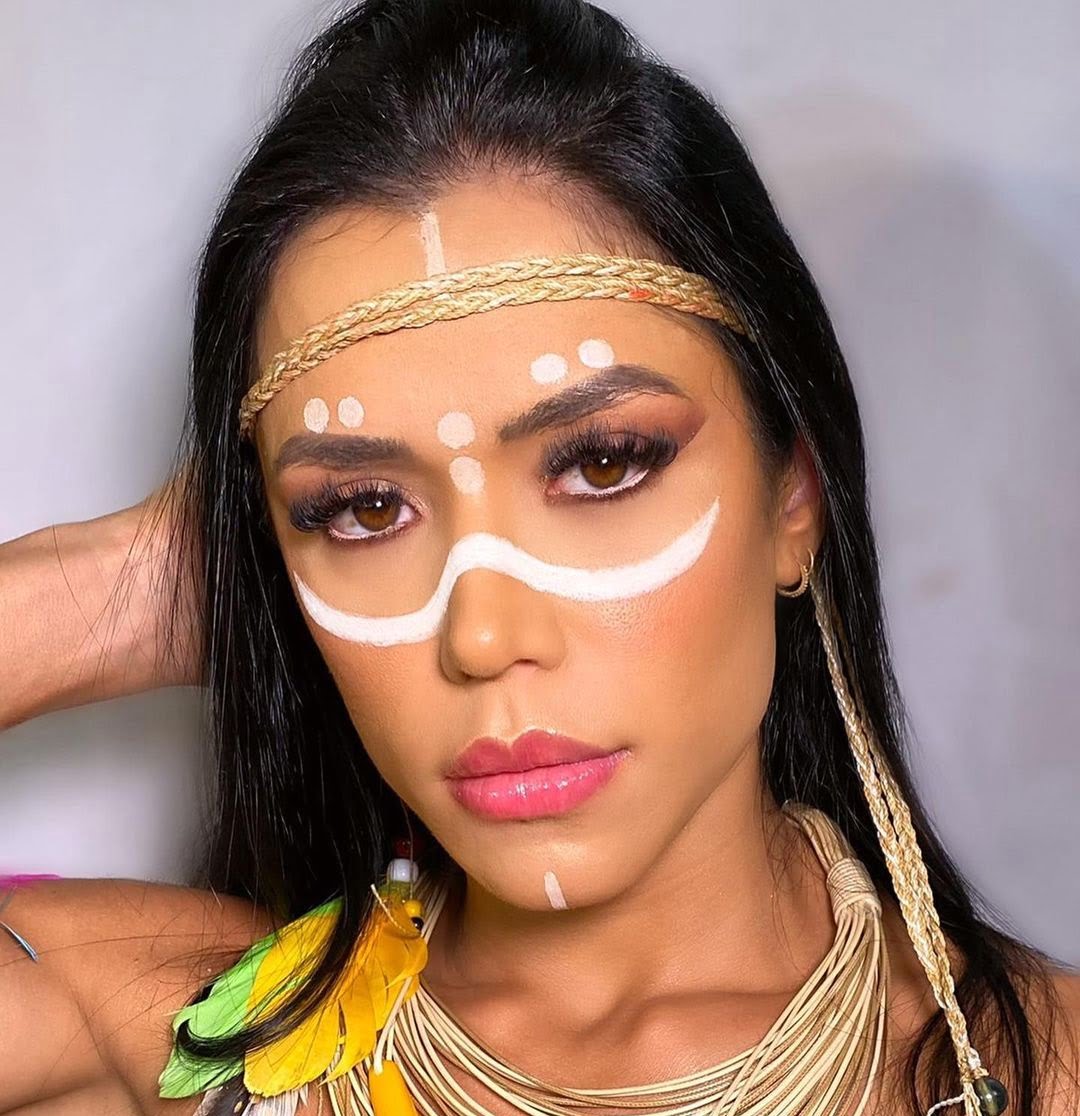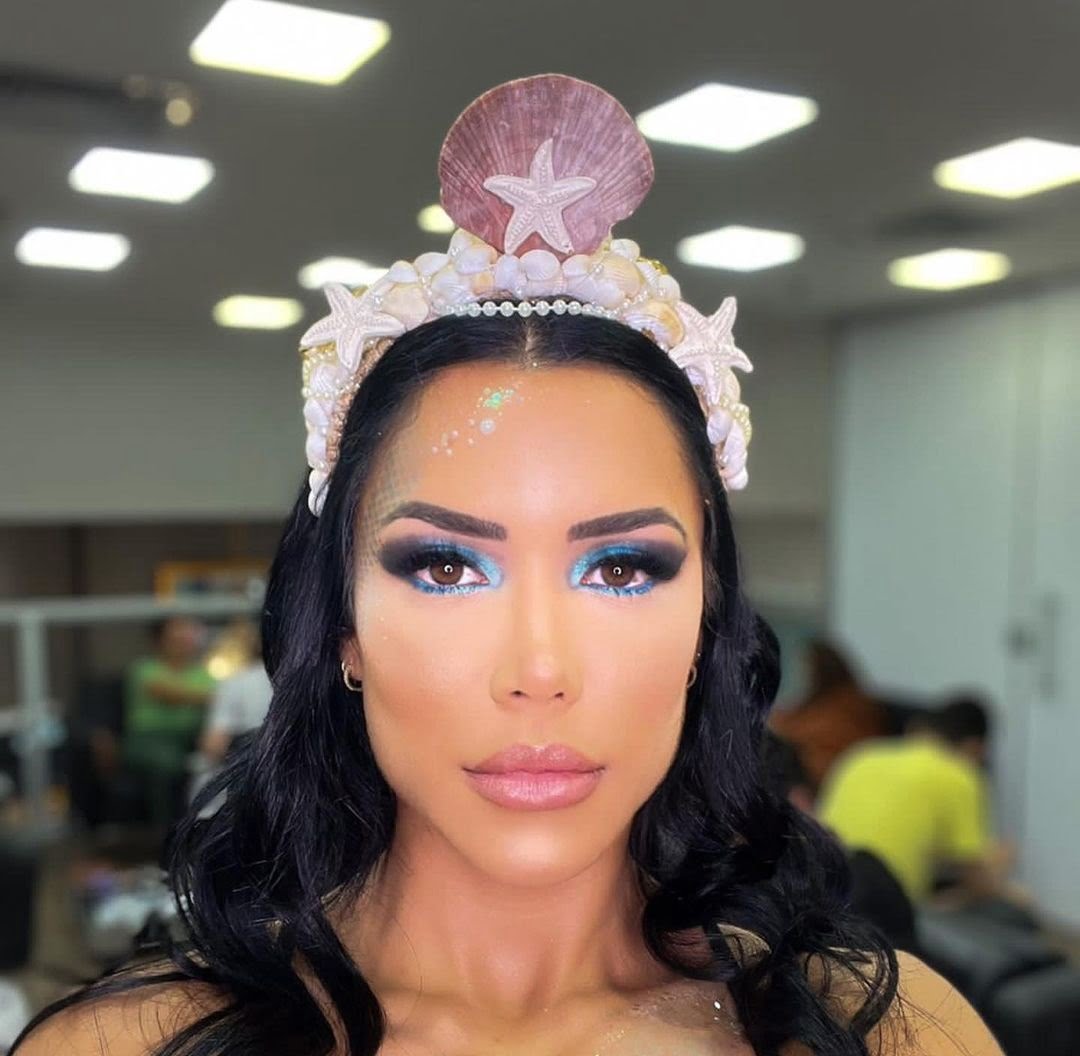Is there a line between self-expression and public decency, especially when it comes to social media and the spaces we share? The recent controversy surrounding Brazilian influencer Indianara Jung has ignited a fiery debate about exactly that, pushing boundaries and raising questions about the acceptable use of public spaces.
Indianara Jung, a name that's become synonymous with online controversy in Brazil, has found herself at the center of a social media storm. With a significant online presence, boasting 234,000 followers on Instagram and an additional 168,000 on TikTok, Jung's reach is undeniable. However, it's not her follower count that's making headlines, but rather the content she's been posting. The influencer, known for her work on platforms like Instagram and OnlyFans, found herself banned from gyms in Santa Catarina and Rio Grande do Sul after videos of her performing what were deemed "obscene" acts in the gyms went viral. These clips, often filmed during regular business hours and featuring unsuspecting gym-goers in the background, sparked outrage and ignited a nationwide discussion about public conduct and the boundaries of online content creation. The videos show her doing contentious activity in the gym while working out. Jung, who hails from Rio Grande do Sul, primarily creates adult content for OnlyFans, where she shares sexually explicit images. This pre existing career choice, combined with her gym antics, has further fueled the controversy. The influencer was seen buying movie tickets at the snack bar by fans who identified her as Indi Jung, an adult content star.
| Category | Information |
|---|---|
| Full Name | Indianara Jung (often referred to as Indi Jung online) |
| Profession | Brazilian Model, Instagram Star, TikTok Star, OnlyFans Model, Internet Personality, Fitness Model |
| Known For | Stunning fitness photos and videos, online controversy related to her gym videos |
| Social Media Presence |
|
| Controversy | Banned from gyms in Santa Catarina and Rio Grande do Sul, Brazil, for posting controversial videos filmed inside the gyms. |
| Residence | Currently based in Florianpolis, Brazil |
| Nationality | Brazilian |
| Hobbies & Interests | Fitness, modeling, creating content for social media platforms, lifestyle |
| Age (Inferred) | Started actively pursuing fitness at 18 (exact age currently not publicly available) |
The core of the issue lies in Jung's TikTok videos, which quickly went viral. These videos depicted her performing suggestive movements in gyms during business hours, often with other patrons visible in the background. The public backlash was swift and severe, with many accusing her of disrespecting the space and potentially making others uncomfortable. Some critics also pointed out the potential for objectification and the exploitation of a public setting for personal gain. The debate quickly spread beyond social media, with news outlets and commentators weighing in on the ethical and social implications of Jung's actions. Was it simply a case of an influencer pushing the boundaries for attention, or was there a deeper issue at play regarding the appropriate use of public spaces and the potential impact of online content on real-life environments? While details about her height are vague, the "excellent height" she possesses is always mentioned by admirers.
- Death2kuffar Is This Shock Film Real Disturbing Content Explored
- Clint Capelas Wife Is The Nba Star Married Find Out Now
The consequences for Indianara Jung have been significant. The gym bans in Santa Catarina and Rio Grande do Sul are a direct result of the controversy, effectively limiting her access to these facilities. Moreover, the incident has undoubtedly impacted her public image, potentially affecting future collaborations and opportunities. While she continues to maintain a strong online presence, the controversy has cast a shadow over her brand, forcing her to navigate a delicate balance between self-expression and public perception. It also remains to be seen if other establishments will follow suit and impose similar restrictions. The entire situation raises critical questions about the responsibilities of influencers and the potential consequences of their actions in the real world. While Jung's supporters may argue that she has the right to express herself freely, critics maintain that her actions crossed a line by disrupting and potentially offending others in a public setting. This tension between individual freedom and social responsibility is at the heart of the debate.
Beyond the immediate controversy, the Indianara Jung case highlights a broader trend in the age of social media. Influencers are increasingly seeking out new and innovative ways to capture attention and grow their online followings. This often involves pushing boundaries and challenging conventional norms. However, as the Jung case demonstrates, such tactics can also backfire, leading to public backlash and negative consequences. The incident serves as a cautionary tale for aspiring influencers, emphasizing the importance of considering the potential impact of their content on the real world. It also underscores the need for platforms like Instagram and TikTok to develop clear guidelines and enforcement mechanisms to address inappropriate content and protect public spaces from exploitation. The debate extends beyond the realm of social media, touching on fundamental questions about ethics, morality, and the role of public spaces in a democratic society. Should there be stricter regulations governing online content creation, or should individuals be allowed to express themselves freely, even if it means potentially causing offense or discomfort to others? These are complex questions with no easy answers, and the Indianara Jung case has only served to intensify the discussion.
It's important to note that the online reaction to Indianara Jung's actions has been diverse. While many have condemned her behavior, others have defended her right to express herself and challenge societal norms. Some have even argued that the controversy is a form of moral panic, fueled by conservative elements who are uncomfortable with female sexuality and online expression. This perspective highlights the cultural and political dimensions of the debate, suggesting that the outrage may be driven by deeper social anxieties about gender roles, sexuality, and the changing landscape of online communication. It also raises questions about the potential for censorship and the suppression of marginalized voices in the name of public decency. Is the criticism of Indianara Jung a genuine concern for public welfare, or is it a veiled attempt to control female expression and silence dissenting opinions? These are questions that demand careful consideration, as they speak to the broader power dynamics at play in online culture and the ongoing struggle for freedom of expression.
- Shawn Roberts Bio Age Movies Is He Married Find Out Now
- David Bromstad From Hgtv Star To Relationships More
The incident also sheds light on the evolving relationship between online and offline spaces. In the past, these two realms were largely distinct, with different rules and expectations governing behavior. However, as social media becomes increasingly integrated into our daily lives, the boundaries between online and offline are blurring. This means that actions taken online can have very real consequences in the physical world, as the Indianara Jung case clearly demonstrates. It also means that individuals need to be more mindful of their online behavior and its potential impact on others. What might be considered acceptable or even humorous in an online context may be deemed inappropriate or even offensive in a public setting. This requires a greater level of awareness and sensitivity, as well as a willingness to adapt to the changing norms of online communication. The Indianara Jung controversy serves as a reminder that our online actions have real-world consequences, and that we all have a responsibility to act ethically and responsibly in both online and offline spaces.
Beyond the ethical and social implications, the Indianara Jung case also has potential legal ramifications. Depending on the specific laws in Santa Catarina and Rio Grande do Sul, her actions could potentially be considered a form of public indecency or even harassment. While it's unlikely that she would face criminal charges, it's possible that she could be sued for damages by individuals who were offended or negatively impacted by her videos. The legal aspects of the case are complex and could potentially set a precedent for future cases involving online content and public conduct. It's also worth noting that social media platforms themselves have a responsibility to address inappropriate content and protect their users from harassment and abuse. While platforms like Instagram and TikTok have policies in place to prohibit explicit content and hate speech, these policies are often difficult to enforce effectively. The Indianara Jung case highlights the challenges that social media companies face in balancing freedom of expression with the need to protect their users from harm. It also underscores the importance of developing more effective mechanisms for identifying and removing inappropriate content, as well as holding users accountable for their actions online.
The story of Indianara Jung also throws light on the complex and often contradictory nature of online fame. In an era where anyone can become an influencer, the pursuit of online attention can lead to increasingly extreme and controversial behavior. The desire to stand out from the crowd and gain a larger following can sometimes overshadow ethical considerations and lead individuals to engage in actions that they might otherwise avoid. The Indianara Jung case is a prime example of this phenomenon, demonstrating the potential for online fame to both empower and corrupt. While online fame can offer opportunities for financial gain and social influence, it can also come at a significant cost, including loss of privacy, public scrutiny, and reputational damage. It's important for aspiring influencers to be aware of these potential downsides and to carefully consider the ethical implications of their actions before seeking online fame. It's also important for society as a whole to be critical of the culture of online fame and to resist the temptation to reward controversial or unethical behavior. By promoting ethical and responsible online conduct, we can create a more positive and sustainable online environment for everyone.
The Indianara Jung incident is not an isolated case. Similar controversies have erupted in recent years, involving influencers and celebrities who have pushed the boundaries of acceptable behavior in public spaces. These incidents highlight the growing tension between individual expression and social norms, as well as the challenges of regulating online content in a rapidly evolving digital landscape. The Indianara Jung case serves as a microcosm of these larger trends, offering a valuable opportunity to examine the ethical, social, and legal implications of online behavior in the age of social media. By understanding the complexities of this case, we can gain a deeper appreciation of the challenges and opportunities that lie ahead as we navigate the ever-changing world of online communication.
Ultimately, the Indianara Jung controversy is a reminder that online actions have real-world consequences. It underscores the importance of ethical and responsible online conduct, as well as the need for clear guidelines and enforcement mechanisms to protect public spaces from exploitation. It also highlights the complex relationship between individual expression and social norms, as well as the challenges of regulating online content in a rapidly evolving digital landscape. As we continue to navigate the ever-changing world of online communication, it's essential that we engage in open and honest discussions about these issues, in order to create a more positive and sustainable online environment for everyone. Only then can we harness the power of social media for good, while mitigating the risks and harms that can arise from unethical or irresponsible online behavior. The case also highlights the crucial need for critical thinking and media literacy, enabling individuals to discern between genuine expression and attention-seeking stunts, and to evaluate the potential impact of online content on their own lives and communities. By fostering a more informed and engaged citizenry, we can create a more resilient and responsible online culture that promotes ethical behavior and respects the rights and dignity of all individuals.
The Indianara Jung saga serves as a potent case study in the intersection of online fame, public conduct, and social responsibility. Her actions, while undeniably controversial, have sparked a vital conversation about the boundaries of self-expression, the ethical considerations of online content creation, and the impact of social media on our shared spaces. Whether viewed as a brazen act of defiance or a misguided attempt to gain attention, the incident has forced us to confront uncomfortable truths about our online culture and the challenges of navigating a world where the lines between the virtual and the real are increasingly blurred. As we move forward, it is imperative that we learn from this experience, fostering a more nuanced and responsible approach to online communication, while upholding the principles of freedom of expression and respect for all members of society.
- Kevin Corcoran Laura Soltwedel A Disney Life Remembered
- Ella Hughes Uk Pornstar Bio Videos More Updated 2024


